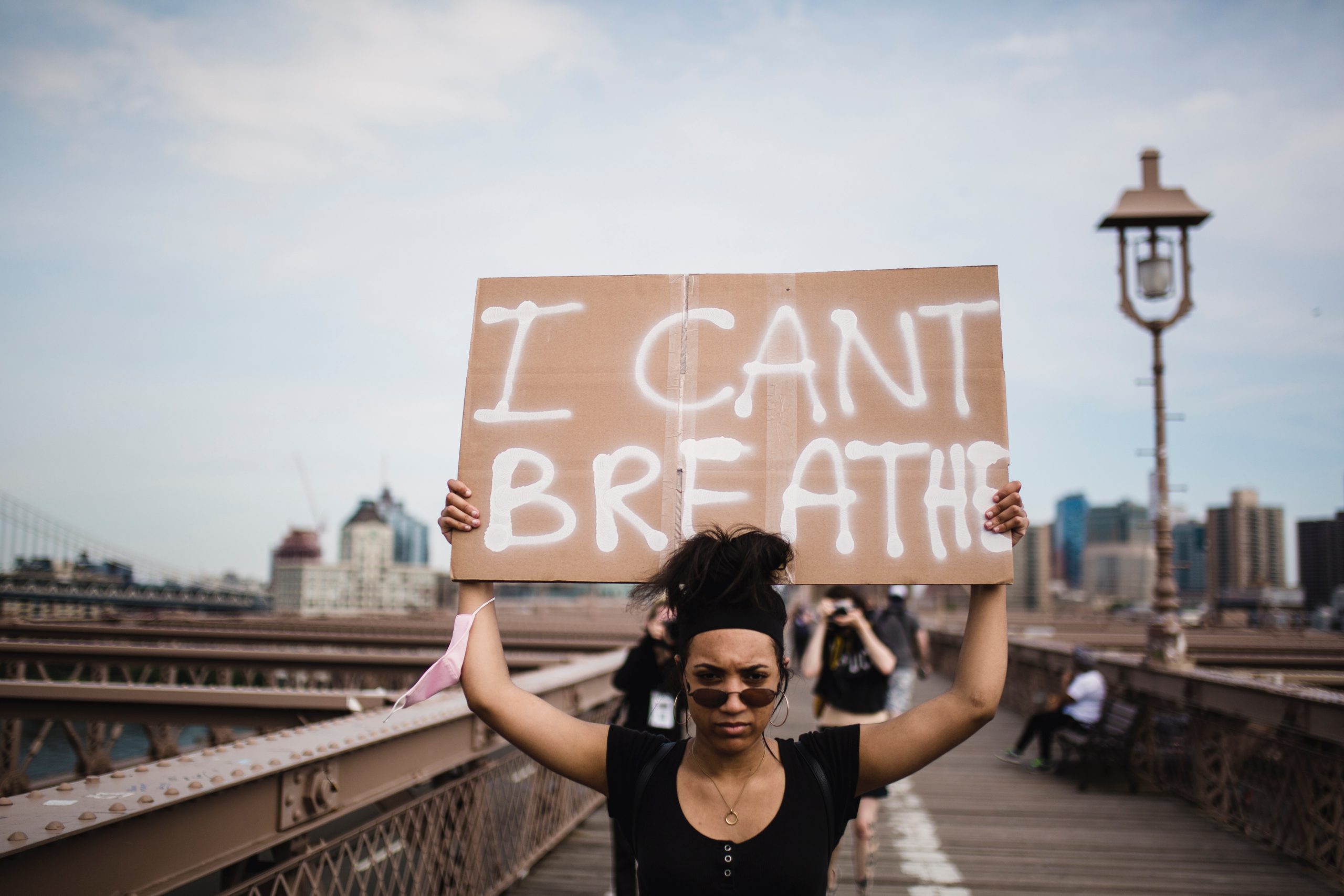Why I’m no longer Color Blind by Michael Shorter
First, before we start, I have to say that if what you are about to read makes sense to you, that reaffirms the problems we are about to discuss. I am not anyone special, nor do I have a unique way with words than others do. The only thing that make me different from the many people of color who have been trying to get people to understand the problems with being “colorblind” is that I am not a person of color. If this makes you uncomfortable, than good. You will need to get used to this feeling if you wish to grow regarding this topic, or any others for that reason. If you wish to disagree, you are entitled to that, but do not let it cloud your mind to the point in which you cannot hear another persons perspective. We must be better.
Right now, the former police officer that killed George Floyd is currently on trial. It is only one of the myriad of cases that have been front and center in the news. I highlight this one, not because it is where this journey begins for me, but because it was my breaking point. This past summer unrest swept across our country. With people demanding to be heard, to be seen, to be acknowledged. They were met with condemnation. It showed me something I, for so long, didn’t want to see. The country that I loved. The country that I fought for. The country my friends died for, did not exist. Instead of coming together, united under the banner that Black Lives Mattered, we saw people retort that instead Police Lives Mattered, or more specifically, Police Lives Mattered More. Instead of seeing a video of a man dying while under the knee of a police officer who looked way to casual and being outraged. People instead looked at the fact that the man was not perfect, as though that fact deserved a death sentence. As I said earlier, this is not the beginning of my journey, just the catalyst for change.
My journey towards understanding that the citizens of my country did not experience life the same as the majority did began while I was still in the Army. The memory that stands out the most for me was one that involved a Soldier named Robert. He was Jamaican from birth and joined the military at a much later age than most do. We had served alongside each other in Afghanistan where he was awarded the Purple Heart for wounds that he received while the gunner of his vehicle. Robert was one of the few Soldiers that I served with that actually liked talking about deeper, more philosophical, topics. One afternoon, after we had redeployed, Robert and I were out at our Companies smoking area. I don’t remember the incident that sparked the conversation, just that it involving police brutality targeted at an person of color. Most of the conversation itself is a blur, with the exception of one part.
“Mike, when you get pulled over what do you do?”
“Um, what most do. I grab my registration out of my glove box and grab my license out of my wallet to hand to the officer when he gets to my window. Why?”
“You know what I do?” Robert asked, “I roll down my window and put both my arms out for the officer to see.”
His words were powerfully simplistic. Robert knew that I viewed myself as colorblind, and that I treated him the same way I treated the rest of my Soldiers. Instead he let the power of his words sit. He continued to tell me that he had to have a conversation with his children on how to act around officers of the law, as to not draw their ire. This was the first time I had heard the difference in a person of colors experience as opposed to a white mans. Though I have no doubt that this was not the first time someone tried to tell me this.
This was the beginning of the journey for me.
You see, I grew up idolizing Dr. King. I had so much respect for a man that was willing to stand up against hatred and fight for change. I always remembered that he had achieved that change through peaceful measures, as sign of how great a country we must live in that one can achieve such great change without violence. I would always muse about how, if I was alive during the civil rights movement that I would have walked alongside Dr. King and Mr. Lewis. I looked down on the Black Panther movement because it was aggressive. I didn’t like that at times they continued to draw a difference between white and Black Americans. I loved Dr. Kings I Have a Dream speech, though up until I went to make sure I quoted it properly in this very piece I had never realized that I had never read the whole speech. Even as I thought to include my favorite part of that speech, after reading it in it’s entirety I realized that even that had been whitewashed. The imagery of little white boys and girls holding hands with little black boys and girls was what I wanted to embody in my life. So I vowed, silently to myself, that I would not look at another person and see the color of their skin. I would choose to be “Colorblind.”
Thirty years later I find myself in tears as I am beginning to understand the problem with that thought. To say that you are colorblind is almost like saying All Lives Matter. While technically altruistic, by not acknowledging the daily difficulties that a person of color experiences you are perpetuating the travesty, even if it is just by being blind to it. Since this summer I have made a point to not be colorblind any more. I have begun to listen to the voices of the oppressed and not take a defensive stance. Instead, attempting to understand their experience. I have read more about the Black Americans experience, and I have tried to find ways to support the Black Lives Matter movement, beyond slapping an emoji on social media. I have learned the truth about the Civil Rights movement. How it took both Dr. King and Malcolm X (the carrot and the stick to be coarse about it) to bring about change. How there has been a huge effort to misrepresent the Black Panther Movement and the positive effect they had in the Black community. I have learned about the great length the entire US Government went to in an attempt to suppress Black American’s. I have begun to understand that not everything that I say or do is received the way I intend it to be. My journey is only beginning and I know I have more to learn than I have learned. This is evidenced by the fact that the first time I read a speech that I loved was just 30 minutes ago. A reality that brought tears to my eyes, as it is a reminder that I have a long way to go.
So today I understand that I should not be Colorblind. That I should understand the difficulties that Black American’s experience everyday. That the country that I loved does not exist for everyone that resides within its borders, but that I am willing to fight to ensure that one day it does. That while police lives do matter, there is not a history spanning further that our countries existence that shows that they don’t. This is why we say Black Lives Matter. Because we are not seeing that they do. I understand now that police brutality is wrong, and it is perpetrated against Black American’s at a much higher rate. I understand that while it is no longer acceptable to be overtly racist, all that means is that people are now needing to be more creative in oppressing Black American’s. While the south may not look the way it did 60 years ago, there are people that still wish that it did. We are seeing a rash of laws passed that improportionately impact minority communities. This is extremely evident in Georgia, where Black American’s handed the senate to the Democrats by electing two Democrats while voting for President Biden. Showing the world the power that they have always had, and that some are so afraid that they use. This is why now they have tried to make voting more restrictive and uncomfortable. They do this under the guise of voting integrity, despite never producing verifiable evidence of large amounts of fraud.
So if you find yourself uncomfortable at the thought that you have helped keep the status quo by being colorblind, then you have a choice to make. Do you continue in your self imposed ignorance, or do you stand in the uncomfortable and try to be better. If you choose the latter and are wanting to understand more then I will share with you some of the things that I have learned the most from.
First read Dr. Kings speech in it’s entirety:
Watch some talks from my favorite author, Mr James Baldwin and read “The Fire Next Time”.
Check out Emmanuel Acho’s series “Uncomfortable Conversations with a Black Man.” on Youtube and read his book of the same title.
Read Caste by Isabel Wilkerson.
This will hopefully help you in the same ways that it has helped me.
Finally, and most importantly, Stop turning to white people regarding this topic. I am not the expert. Nor is anyone else with my skin tone. Look to Black American’s and for heavens sake just listen. You think it is uncomfortable to hear how you’ve messed up, imagine what it’s like to not have the option to ignore this problem. Now you can understand what a Privilege it is to not have to have these conversations until now.
If any thing I have said is a misrepresentation of Black American’s or if I have said things that are received as perpetuation of long held societal stereotypes, please let me know. I am a work in progress that just hopes to be making progress.




Comments are closed